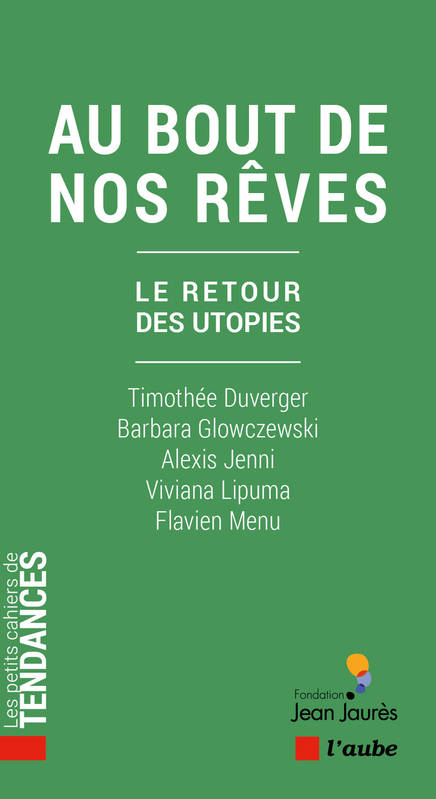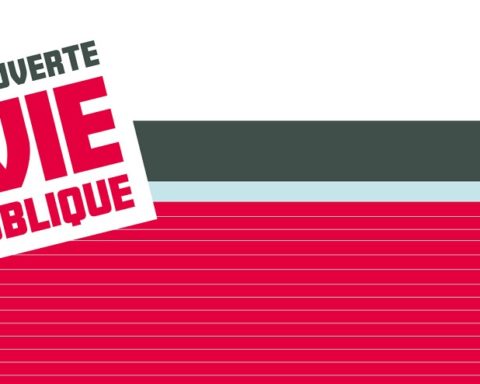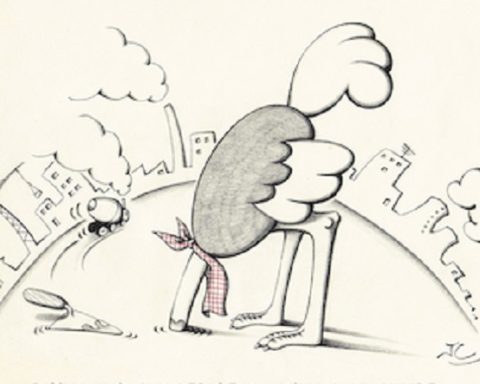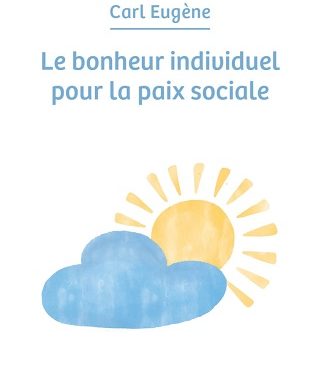 Algocratie. Vivre libre à l’heure des algorithmes, de Arthur Grimonpont. Préface de Jean-Marc Jancovici – Editions Actes sud, 12 octobre 2022 – 288 pages
Algocratie. Vivre libre à l’heure des algorithmes, de Arthur Grimonpont. Préface de Jean-Marc Jancovici – Editions Actes sud, 12 octobre 2022 – 288 pages
« L’histoire de l’humanité ressemble de plus en plus à une course entre l’éducation et la catastrophe », remarquait en 1920 l’écrivain britannique H. G. Wells. Un siècle plus tard, jamais l’humanité n’a atteint un tel niveau d’interconnexion. Jamais nous n’avons eu à notre disposition autant de temps libre. Jamais l’information n’a irrigué nos cerveaux en de tels volumes. Ces conditions réunies auraient pu nous permettre d’atteindre un sommet dans notre capacité à nous informer, à nous éduquer et à coopérer pour résoudre toutes sortes de défis collectifs. Au lieu de cela, nous assistons à une dégradation rapide de notre santé mentale, à la généralisation de la désinformation et à l’émiettement politique de nos sociétés. Nous poursuivons notre course effrénée vers le mur écologique. Qu’a-t-il mal tourné ?
Une partie de l’explication tient à la mainmise du capital sur les principaux flux d’information. Marx écrivait dès 1845 : « à toute époque, les idées de la classe dominante sont les idées dominantes […] La classe qui dispose des moyens de la production matérielle dispose en même temps, de ce fait, des moyens de la production intellectuelle, si bien qu’en général, elle exerce son pouvoir sur les idées de ceux à qui ces moyens font défaut ».
Dans la plupart des pays du monde, un petit nombre de milliardaires et d’entreprises tentaculaires possèdent la majorité des médias (presse, radio, TV) – quand ces derniers ne sont pas aux mains d’un État totalitaire.
L’accumulation matérielle ayant partie liée avec la surexploitation des ressources, la concentration des médias fait rempart à l’écologie aussi surement qu’au partage des richesses. Il ne faut pas attendre de ceux ayant intérêt à ce que rien ne change de mettre en branle le changement.
Au filtre des médias traditionnels (presse, radio, TV) se superpose aujourd’hui le filtre des réseaux sociaux, devenus le premier mode d’accès à l’information. Quatre milliards et demi d’humains passent plus de sept heures par jour sur Internet. Ils y travaillent, y socialisent, y étudient, y font leurs courses et s’y divertissent. La virtualité de nos vies dépasse ce qu’avaient pu anticiper les scénarios de science-fiction les plus extravagants du XXe siècle. Ce temps passé sur Internet n’est pas la simple contrepartie des services qu’il nous rend. L’économie extractiviste se déploie dans le monde virtuel avec la même avidité que dans le monde réel, et c’est avec un appétit renouvelé que les entreprises technologiques exploitent une ressource d’un nouveau genre : notre temps d’attention. Les réseaux sociaux, principaux belligérants de la guerre de l’attention, ont mis en œuvre les moyens de leurs ambitions : construire une audience gigantesque, capter son attention et la convertir en revenus publicitaires. Quels sont leurs moyens ? Une capacité hors du commun à connaître, cibler et influencer nos comportements grâce aux algorithmes de recommandation. Les réseaux sociaux se sont hissés au rang de premier usage du Web. Nous consacrons en moyenne soixante jours par an à scroller sur Facebook et Instagram, à enchaîner des vidéos sur YouTube ou à faire défiler des miniclips sur TikTok. Au cours de leur scolarité, les étudiants passent davantage de temps sur les réseaux sociaux qu’en cours ou qu’à discuter avec leurs proches. 120 000 ans de vidéos sont quotidiennement visionnées sur YouTube ; les trois quarts sont le fruit de recommandations.
Les algorithmes de recommandation hiérarchisent l’information à laquelle nous accédons – ou n’accédons pas. Ils construisent et mettent à jour nos représentations du monde. Notre « liberté d’opinion » s’exerce dans le cadre très limité de fils d’actualité dont le seul objectif est de nous tenir captifs. Cette machine à extraire l’attention trouve les ressorts de son efficacité dans sa propension à susciter notre addiction en stimulant nos pulsions instantanées. Les pulsions déchainent les passions ; les passions éclipsent la raison ; les théories du complot remettent en cause les connaissances scientifiques les mieux établies. Sur Twitter, les fake news se propagent six fois plus vite que les informations authentiques. Notre socle de valeurs communes s’effrite à mesure que nous nous enfermons dans des bulles informationnelles et que la distraction permanente divertit notre attention de priorités collectives. Noam Chomsky, reprenant à son compte les conclusions des scientifiques du Bulletin of the Atomic Scientists de l’université de Chicago, énumère trois menaces existentielles pour l’humanité. Aux traditionnels risques de conflit nucléaire et de catastrophe écologique, il ajoute « un paysage de l’information corrompu empêchant toute prise de décision rationnelle ».
Comment espérer résoudre des défis collectifs tels que le changement climatique si le paysage de l’information divise la société sur leurs causes, voire remet en cause leur existence même ? Dans un tel paysage informationnel, nous avons les mêmes chances d’apporter une réponse intelligente au défi écologique que d’arriver à bon port en embarquant pour une transatlantique avec un équipage ivre par une nuit de tempête sans carte de navigation.
Nul déterminisme technologique ne nous condamne au pire. Réguler les réseaux sociaux n’est pas seulement possible mais impératif – l’Europe et les États-Unis s’y attellent. Nous devons proscrire le modèle publicitaire et la logique d’extraction d’attention, que nous savons antinomiques avec nos valeurs morales, notre santé mentale et la qualité de l’information. Voyons les plateformes sociales comme ce qu’elles sont devenues : les plus grandes places de rencontre entre les personnes et les idées. À l’heure où un milliardaire peut décider seul du sort d’un réseau social ou de censurer un représentant politique, nous devons reprendre le contrôle démocratique de nos places publiques numériques. Mettons les plateformes sociales et leurs algorithmes de recommandation au service du bien commun.
Imaginons qu’au lieu d’en être les produits, nous devenions acteurs de l’économie de l’attention. Imaginons qu’au lieu de propulser les contenus outranciers et décadents, la puissance des algorithmes de recommandation de YouTube soit mise au service de la culture et de l’éducation. Imaginons qu’au lieu de subir passivement un déferlement d’actualités biaisées dans notre bulle informationnelle, Facebook nous invite à évaluer la qualité et l’intérêt de chaque contenu pour les recommander au-delà de nos cercles. Imaginons qu’au lieu de décupler l’audience des querelles stériles, Twitter accorde une préférence aux débats éclairés et nuancés. Bâtir une démocratie de l’information est une nécessité vitale et la clé d’un formidable progrès humain.
Arthur Grimonpont est ingénieur, chercheur et consultant spécialisé dans les enjeux de transition face aux crises écologiques. Il a cofondé l’association Les Greniers d’abondance. Son intérêt pour les réseaux sociaux et leur « économie de l’attention » découle d’une interrogation sur les conditions de possibilité d’une révolution écologique.











